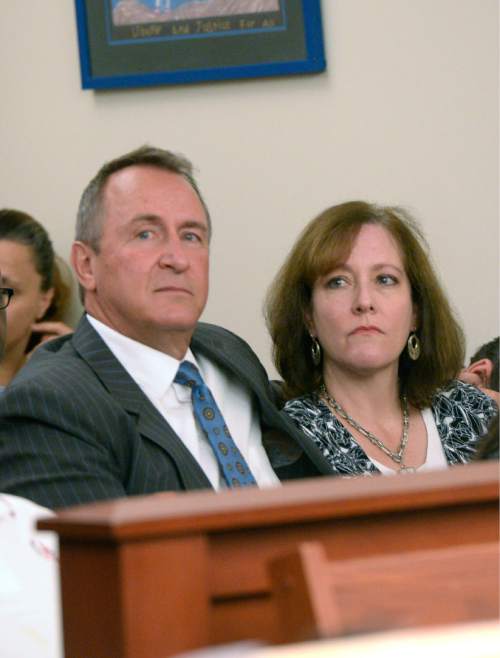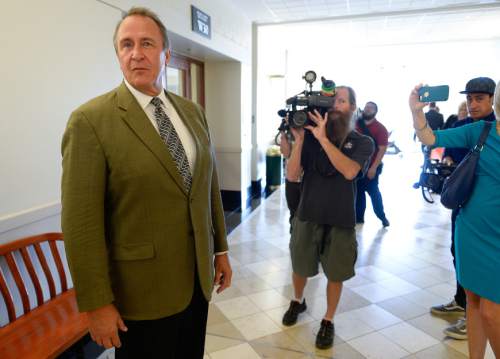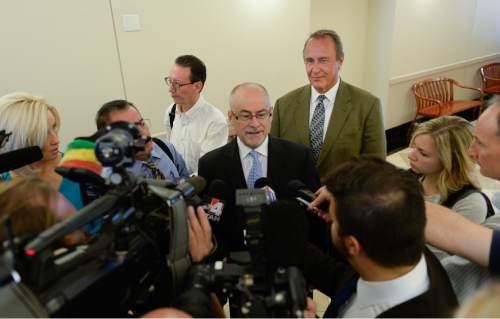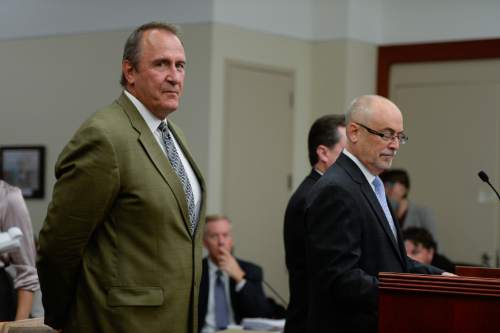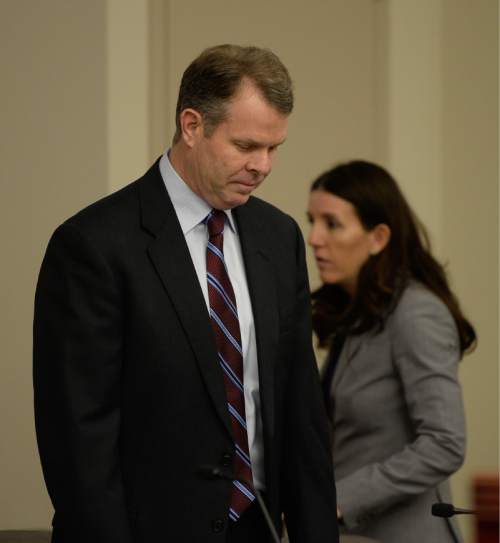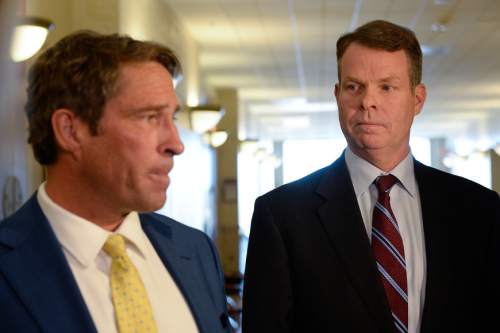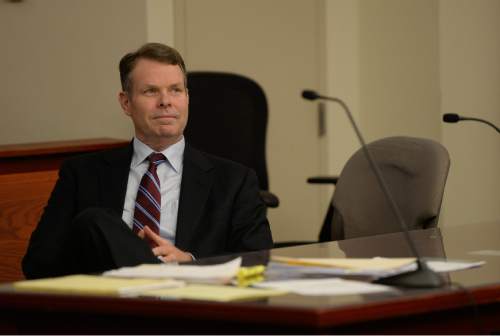This is an archived article that was published on sltrib.com in 2016, and information in the article may be outdated. It is provided only for personal research purposes and may not be reprinted.
A new U.S. Supreme Court ruling that resets the rules for tackling public corruption threatens to undermine the criminal prosecutions of former Attorneys General John Swallow and Mark Shurtleff.
But how deeply depends on which of the two chief prosecutors you ask.
Davis County Attorney Troy Rawlings warned that the high court's decision earlier this week may force him to toss out some of the charges against Shurtleff.
"If we feel we cannot prove the case, or any particular counts beyond a reasonable doubt … we will move to dismiss," a "concerned" Rawlings said.
Salt Lake County District Attorney Sim Gill, whose office is prosecuting Swallow, doesn't want to speculate on the ruling's ultimate reach.
"It's something that we are looking at, of course," Gill said. "Is it an Achilles' heel to our continued prosecution of Mr. Swallow? I would say no."
Shurtleff and Swallow are accused of taking lavish gifts — such as rides on private planes, trips to a luxury Southern California resort and houseboat excursions — from campaign donors and others, some of them embroiled in legal troubles and wanting help from the state's top cops.
In the Supreme Court case, former Virginia Gov. Bob McDonnell was accused of taking loans, gifts and vacations from a well-placed businessman who wanted help dealing with state officials.
U.S. Department of Justice attorneys prosecuted McDonnell under federal bribery statutes and won a conviction. The court reversed that verdict, citing concerns over limiting the way elected officials normally interact with constituents.
Holding meetings, making calls to other state officials or arranging events doesn't cross the line, the justices said.
"The basic compact underlying representative government assumes that public officials will hear from constituents and act appropriately on their concerns," Chief Justice John Roberts wrote.
The line-crossing comes, he added, when an official's response takes the form of an "official act," such as a lawsuit, court proceeding or some other explicit activity.
"Our concern is not with tawdry tales of Ferraris, Rolexes and ball gowns," Roberts wrote. "It is instead with the broader legal implications of the government's boundless interpretation of the federal bribery statute."
The 8-0 decision could affect the Shurtleff and Swallow cases, along with Utah law, in multiple ways.
"The biggest impact that this case may have on the charges against the two former attorneys general are the standard by which their dealings with potentially shady donors are held to," University of Utah law professor Shima Baradaran Baughman said. "It is possible that due to this ruling, the state courts in Utah will require a stricter standard to prove the charges of corruption and fraud."
The ruling may also push state lawmakers to consider strengthening Utah's gift statute, she said.
Shurtleff and Swallow were charged in July 2014 after a multiyear investigation by state and federal authorities that landed with state prosecutors after the U.S. Department of Justice declined to file charges.
Both men have pleaded not guilty and are awaiting trial. Each faces up to 30 years in prison if convicted.
Three of the seven counts against Shurtleff are for accepting a prohibited gift. His attorney Richard Van Wagoner said he didn't want to comment on the high court's ruling at this time.
Van Wagoner did, however, urge a judge Friday to dismiss the gift counts against his client on grounds unrelated to the McDonnell ruling. (See accompanying story.)
Swallow faces 14 felony and misdemeanor charges — two are gift counts and three are bribery ones.
His lawyer, Scott C. Williams, said all five might be toppled by the McDonnell decision, which he noted sheds light on "the overbroad application of these kind of statutes."
"I see no material difference between Utah statutes and how they would apply in this case and how the federal statute applies in McDonnell," Williams said. "I don't see why it wouldn't be a game changer."
Gill, who had not yet studied the ruling in depth, said the decision applies first to federal law and sets a narrow definition of what official conduct by state officials should be.
"Nothing here says that states cannot prosecute," Gill said, cautioning that jumping to the conclusion that the ruling makes a definitive statement about prosecutions in Utah would be "premature."
For his part, Rawlings said he's not willing to ignore the new "language, logic and legal precedent" set by the decision — even though the court was not scrutinizing Utah's gift laws.
"We don't think Utah's 3rd District Court and-or the Utah appellate courts would ignore it either," he said.
Rawlings believes that compels his office to assess whether the evidence in Shurtleff's case can hold up.
"If, after reviewing the evidence, we feel we can still prove the case legitimately, we will move forward with whatever counts we feel ethically and appropriately survive," he said. "We are not willing to waste time and resources on a prosecution that can't meet the standards set by the Supreme Court."


